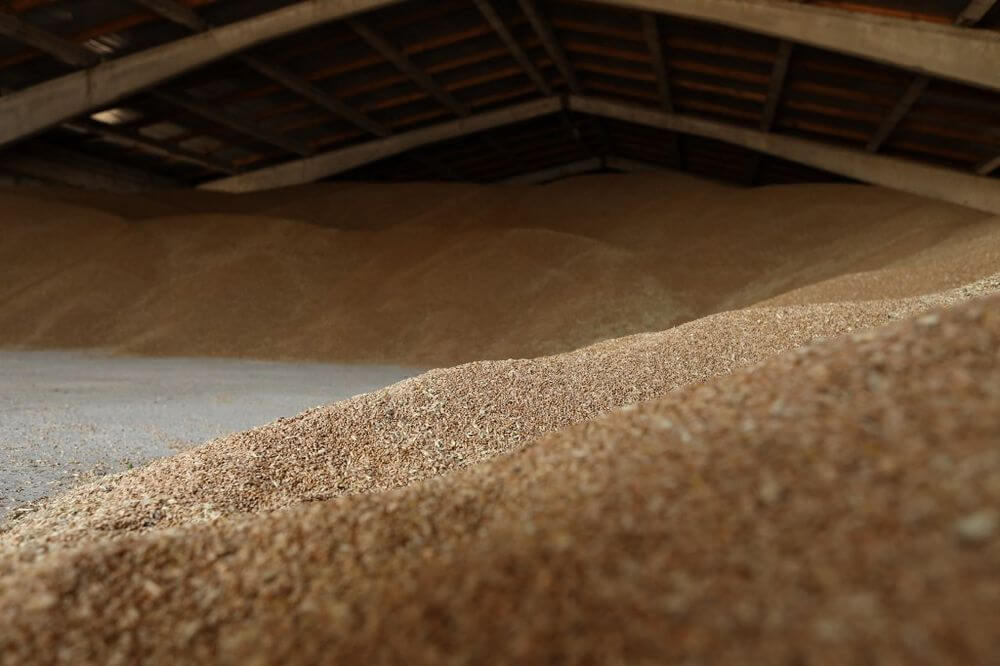Poland and Hungary have agreed to temporarily ban imports of grain and other food commodities from war-torn Ukraine to safeguard the local agricultural sector. At the same time, the EU has rejected the move and cautioned both member countries that such unilateral actions on trade are “unacceptable” and would violate its trade policies.
Overview
Poland and Hungary, as members of the EU, had lifted the tariffs on Ukrainian grain last year to facilitate its exports to the rest of the world amid Russia’s ‘special military operation’ in Ukraine. The EU helped Ukraine by rerouting some shipments from blockaded Black Sea ports via Polish and Romanian roads and railway networks.
However, the exports have led to a glut of produce in Central Europe. Accordingly, the office of the Polish PM has said the temporary ban was meant to “protect the Polish agricultural market against the destabilisation.”
Similarly, Hungarian Agriculture Minister Istvan Nagy declared on Sunday that Hungary would temporarily ban the import of grain, oil seeds, and other agricultural products from Ukraine, stating that such a move was necessary “in the absence of meaningful EU measures.”
The EU slammed moves over the weekend by Poland and Hungary to ban imports of grain from Ukraine https://t.co/wXUylNJYxu
— Bloomberg (@business) April 17, 2023
Struggling Local Farmers
For months, Polish farmers have been protesting against the increasing volume of Ukrainian agricultural products, which are supposed to pass through Poland on their way to other destinations outside Europe as part of “solidarity routes,” but instead remain in Poland and drive down the prices of similar Polish produce. Farmers also reported that no border inspections are being carried out.
The accumulation of grain stocks, and the subsequent drop in grain prices in Central Europe, have sparked agricultural workers’ protests and even prompted the resignation of Poland’s Agricultural Minister Henryk Kowalczyk.
Oversupply has created a political problem for Poland’s ruling Law and Justice Party (PiS) in an election year, with the economy trapped in stagflation. To this end, the leader of the ruling Law and Justice Party (PiS), Jaroslaw Kaczynski, stated that the government had decided on a regulation that bans the entry of grain, as well as the importation of dozens of other food items, including “grain to honey products, very very many things,” into Poland.
Kaczynski stated that every nation must safeguard its citizens’ interests, and that the move would not harm relations between Warsaw and Kyiv, with the latter already taking unspecified actions to resolve Poland’s concerns.
Nationalist Hungarian PM Viktor Orban’s government on Saturday joined the ban, claiming that the status quo would harm local farmers. Hungary did not specify when the ban on grain and other food imports would take effect but stated that it would expire at the end of June.
🇧🇬⚡️ Bulgarian authorities, following the example of Hungary and Poland, are discussing the idea of banning grain imports from Ukraine, Bulgarian Agriculture Minister Yavor Gechev said.
— hem_day (@hem_day) April 16, 2023
After the ban on grain shipments via Poland and Hungary, 70% of Ukraine's GDP is made up of… pic.twitter.com/gevv5RWYXs
EU Condemns Unilateral Actions
The European Commission denounced the decision, stating that individual members should not decide on trade policies. In a statement, an EU spokesperson, Arianna Podesta, stated that the EU is aware of Poland and Hungary’s ban on grain imports from Ukraine, and that it is “important to underline that trade policy is of EU exclusive competence and, therefore, unilateral actions are not acceptable.”
The bloc has yet to specify the actions it will take against Poland and Hungary. “In such challenging times, it is crucial to coordinate and align all EU decisions,” said Podesta.
Ukraine’s Response to the Ban
Ukrainian Agriculture Minister Mykola Solski stated that Kyiv understands the difficulties faced by farmers in Warsaw, but insists “it is the Ukrainian Farmer who is in the most difficult situation” amidst the war with Russia. Solski added that he spoke to his Hungarian counterpart Istan Nagy on Sunday and agreed that the two would talk again soon.
Similar Opposition in Bulgaria
Following the Polish and Hungarian announcements, Bulgaria’s acting agriculture minister, Yavor Gechevon, indicated on Sunday that his country would explore a similar ban on grain imports from Ukraine. He said such a move would “protect Bulgaria’s interests,” and that the country would have too much grain “unless we take appropriate action.”

